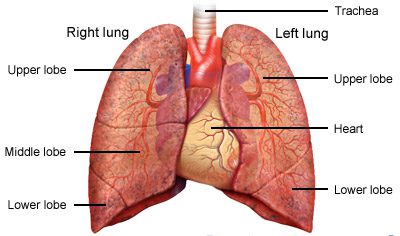In the ever-evolving landscape of cancer treatment, immunotherapy has emerged as a revolutionary paradigm, reshaping the way we combat this formidable disease. This article delves into the profound impact of immunotherapy for cancer, with a specific focus on its transformative role in lung cancer, unraveling the promise it holds for patients and the future of oncology.
Unleashing the Body's Defenses: The Essence of Immunotherapy for Cancer
Immunotherapy for cancer encapsulates a groundbreaking approach centered on harnessing the body's own immune system to identify and eliminate cancer cells. Unlike traditional treatments, which directly target cancer cells, immunotherapy empowers the immune system to recognize and mount a precise and sustained attack against malignancies.
The versatility of immunotherapy extends across various cancers, reflecting its potential to become a cornerstone in the arsenal of cancer treatments. From enhancing the body's natural defenses to reprogramming immune cells, immunotherapy marks a departure from conventional approaches, offering a more targeted and less invasive alternative.
Immunotherapy for Lung Cancer: A Beacon of Hope
In the realm of cancer, lung cancer stands as a formidable adversary, often diagnosed at advanced stages with limited treatment options. Immunotherapy for lung cancer highlights the specific strides made in leveraging immunotherapy to confront the challenges posed by lung malignancies.
Non-small cell lung cancer (NSCLC), the most prevalent form of lung cancer, has witnessed significant advancements with the introduction of immunotherapy. Immune checkpoint inhibitors, such as pembrolizumab (Keytruda) and nivolumab (Opdivo), have demonstrated remarkable efficacy in certain subsets of NSCLC by blocking proteins that inhibit immune responses, thereby unleashing the immune system to target and destroy cancer cells.
How Immunotherapy Works in Lung Cancer: Unraveling the Mechanisms
The mechanisms behind immunotherapy for lung cancer are as intricate as the disease itself. By targeting specific checkpoints that regulate immune responses, these therapies remove the brakes on the immune system, allowing it to recognize and attack cancer cells.
PD-1 and PD-L1, key players in immune regulation, have become focal points in immunotherapy research. Inhibiting the interaction between PD-1 on immune cells and PD-L1 on cancer cells prevents the immune system from being suppressed, enabling a robust anti-cancer response. This approach has demonstrated significant success in improving overall survival and quality of life for individuals with advanced NSCLC.
Benefits and Considerations: Navigating the Landscape of Immunotherapy
Immunotherapy brings a host of benefits, including prolonged survival, fewer side effects compared to traditional treatments, and the potential for durable responses. However, not all patients respond equally, and ongoing research seeks to unravel the factors influencing response rates and identify biomarkers that can guide treatment decisions.
Combination therapies, involving the integration of immunotherapy with other modalities like chemotherapy or targeted therapy, represent an exciting frontier. These combinations aim to enhance the effectiveness of immunotherapy across a broader spectrum of patients and tumor types.
The Future of Immunotherapy: Promise and Progress
As we peer into the future, the promise of immunotherapy for lung cancer continues to evolve. Ongoing clinical trials explore novel combinations, biomarkers, and refinements in treatment strategies, paving the way for a more nuanced and personalized approach to care.
Researchers are delving into the realm of predictive biomarkers, aiming to identify specific characteristics that can foretell a patient's likelihood of responding to immunotherapy. This pursuit holds the potential to optimize treatment decisions, ensuring that immunotherapy is administered to those most likely to benefit.
Conclusion: A New Horizon in Cancer Treatment
In conclusion, the evolution of immunotherapy marks a paradigm shift in the landscape of cancer treatment, especially for lung cancer. From unlocking the body's natural defenses to rewriting the rules of engagement with cancer cells, immunotherapy stands at the forefront of the fight against this challenging disease.
With a specific focus on lung cancer, immunotherapy represents a beacon of hope, offering new possibilities for patients who once faced limited options. As research progresses and our understanding deepens, the future of immunotherapy holds the promise of more effective, personalized, and less invasive treatments, redefining the horizon of cancer care and instilling hope in the hearts of those navigating the complexities of lung cancer.


No comments yet